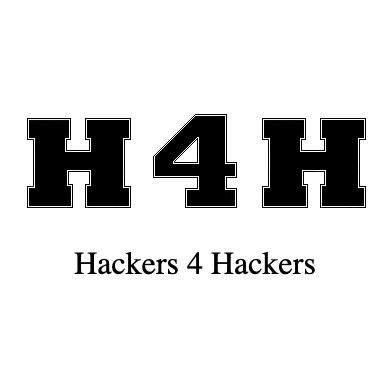Copy Link
Add to Bookmark
Report
d4_0x06_DNFWAH_the_awesome_truth_about_hackers

|=-----------------------------------------------------------------=|
|=-----=[ D O N O T F U C K W I T H A H A C K E R ]=-----=|
|=-----------------------------------------------------------------=|
|=------------------------[ #4 File 0x06 ]-------------------------=|
|=-----------------------------------------------------------------=|
|=--------------=[ The Awesome Truth About Hackers ]=--------------=|
|=-----------------------------------------------------------------=|
|=-----------------------=[ By Pete Herzog ]=----------------------=|
|=-----------------------------------------------------------------=|
|=------------------------=[ Sep 17 2014 ]=------------------------=|
|=-----------------------------------------------------------------=|
+*************************************************************************+
! The hacker is basically an expert or enthusiast of any kind. One might !
! be an astronomy hacker or carpenter hacker, which means a person can !
! be a hacker without having anything to do with computers. !
! !
! --- The HACKER Ethic and the Spirit of the Information Age !
+*************************************************************************+
--[ 1. T H E R E A L H A C K E R I S ...
Whatever you may have heard about hackers, the truth is they do
something really, really well: discover. Hackers are motivated,
resourceful, and creative. They get deeply into how things work, to
the point that they know how to take control of them and change them
into something else. This lets them re-think even big ideas because
they can really dig to the bottom of how things function.
Furthermore, they aren't afraid to make the same mistake twice just
out of a kind of scientific curiosity, to see if that mistake always
has the same results. That's why hackers don't see failure as a
mistake or a waste of time because every failure means something and
something new to be learned. And these are all traits any society
needs in order to make progress.
Now, there is the expected resistance from authorities. Mostly because
people don't know what hacking really is. Many people who have been
called hackers, especially by the media, or who have gotten in trouble
for "hacking" were not, in fact, hackers. Most all of them were just
thieves and fraudsters. When you read in the news, *Teen girl hacks
Facebook to harass a classmate*, what you're seeing is a
sensationalized headline. What a hacker reads in that headline is:
*Mean girl watched classmate type in her Facebook password and then
logged in as her*. That mean people and criminals do bad things with
communications medium is not a reason to fear people.
Hacking is a type of methodology. It's a way to do research. Have you
ever tried something again and again in different ways to get it to do
what you wanted? Have you ever opened up a machine or a device to see
how it works, read up on what the components are, and then make
adjustments to see what now worked differently? That's hacking. You
are hacking whenever you deeply examine how something really works in
order to manipulate it, often creatively, into doing what you want.
A hacker is a type of hands-on, experimenting scientist, although
perhaps sometimes the term "mad scientist" fits better, because unlike
professional scientists they dive right in, following a feeling rather
than a formal hypothesis. That's not necessarily a bad thing. Some
sciences have grown more out of trying stuff than following the
scientific method- like chemistry, materials sciences, and
economics. And many interesting things have been designed or invented
by people who didn't follow standard conventions of what was known or
believed to be true at the time.
For example...
----------------------------------------------------------------------
* The mathematician, Georg Cantor, proposed new ideas about infinity
and set theory that caused outrage amongst many fellow
mathematicians to the point that one called his ideas a "grave
disease" infecting mathematics.
* Nikola Tesla is another person considered a "mad scientist" in his
day, but he knew more about how electricity behaved than anyone
else. He arguably designed the first brushless motor that ran on
AC electricity but is mostly known for the Tesla effect and the
Tesla coil.
* Then there was Ignaz Philipp Semmelweis who figured out that
doctors need to wash their hands between treating patients to keep
diseases from spreading. He wondered if the diseases following him
around between patients were his fault, so he decided to try
washing hands between his patient visits and sure enough the
transmissions disappeared. His ideas went against both the
scientific conventions of what was known at the time about germs
(nothing) as well as the convenience of the doctors who felt it
was too much hassle to keep washing their hands.
----------------------------------------------------------------------
It just so happens that the way the Internet is designed and the huge
number of different applications, systems, devices, and processes it
has makes it the most common place to find hackers. You could say it's
a place where information can run free because it was built open and
free by hackers so it's the best playground for hackers. But it's not
the only place. You can find great hackers in almost every field and
industry and they all have one thing in common: they spend time
learning how things work so they can make them work in a new
way. These hackers didn't look at something as the original designers
did, but instead saw bigger or better potential for it and hacked it
to be something new.
--[ 2. H A C K E R S & & & C Y B E R S E C & & & * * * ?
What you may think you know about hackers is that they can break into
other computers and take over other people's accounts. They can read
your email without you knowing. They can look through your web cam
without your permission and can see you and hear you in the supposed
privacy of your own home. That's not untrue.
Some hackers see network security as just another challenge, so they
tinker with ways to trick or fool the system, but really what they're
trying to do is out-think the network installers or designers. They
discover as much about the network as they can, where it gets its
instructions, the rules it uses, and how it interacts with operating
systems, the other systems around it, the users who have access to it
and the administrators who manage it. Then they use that to try
different ways of getting what they want. This kind of hacking can be
greatly beneficial to the world for understanding how to be safer and
for building even better technology.
Unfortunately though, sometimes the hacking is done by criminals and
what they want is illegal, invasive, and destructive. And those are
usually the only hackers you read about in the news. A hacker is not
someone who posts to someone's account when they leave a social media
page open or shoulder-surfs passwords and then logs into their account
later. That's not hacking. A hacker also is not someone who downloads
a script kiddie tool to break into someone’s email. Those aren't
hackers; those are just thieves and vandals.
Hacking itself is not illegal. At least not any more than throwing a
rock is illegal. It all comes down to intent. If you throw a rock and
your intent is to injure someone, that's a crime. If your intent is
not to hurt someone, but someone does get hurt, that may not be a
crime, but you are responsible for your actions and will have to pay
restitution. An Institute for Security and Open Methodologies
(ISECOM)[1] project called the Hacker Profiling Project[2] found that
the most damage from hacking comes from young, inexperienced hackers
damaging other people's property by accident. Which is why many
hackers stick to hacking the things they bought and own.
The caveat to that is that there are cases where it may be illegal to
hack something you bought and own. There are hackers who have been
punished for hacking their own devices and computers. These things
were closed to prevent them from being copied or changed despite that
they paid for it and own it. These are hackers who hacked programs,
music, and movies they bought so it looked, behaved, and sounded the
way they wanted to or played on other devices they bought and owned
and were prosecuted for it. Especially when they openly shared their
ideas with others. Hackers will find that any closed source software
they buy may be illegal to hack, even if it's just to check for
themselves that it's secure enough to run on their own computer. This
is because many of the things that you purchase may come with
Copyright and a contract as an End User License Agreement (EULA) that
says you can't. And you agree to it when you open or install the
product, even if you can't read it or find out about it after you've
opened or installed the product. Yes, that's sneaky and unfair.
But that's all the more reason to have hackers in our society. You
see, education is open. It can be legally hacked to teach kids to
think openly, be inspired, be curious, and thus, to be a hacker. What
hacking is really about is taking control of something if you don't
like how it works. Why would you do this? To have the freedom to make
something you own do what you want. And to keep others from changing
something you own back to the original form or copying all your ideas,
drawings, writings, and pictures to a cloud somewhere to be controlled
by someone else who claims it's for your "best interest."
As an adult, you know what your own best interest is. Sometimes you
buy something and the company you bought it from will attempt to
forcefully or slyly make sure you can't customize it or change it
beyond their rules. You can't play it somewhere else or use it any
other way than as intended, supposedly to protect you but mostly to
protect their business model. And that might be okay to agree to as
long as you accept the fact that if you break it then you can't expect
them to fix it or replace it. That would mean that hacking something
you own does more than make it yours, it makes it irrevocably and
undeniably yours. As scary as that may sound to some, it certainly has
its advantages. Especially if you want to keep others, like the
company that made it and the marketing company they're re-selling your
information and habits to, out of your stuff.
And finally, what may seem illogical based on the misinformation
you've gotten from the news, hackers make us more secure. For many,
many people, security is about putting a product in place, whether
that's a lock or an alarm or a firewall or anything that theoretically
keeps them secure. But sometimes those products don't work as well
they should, or they come with their own problems that just increase
your "Attack Surface," when a security product should be shrinking
it. (The Attack Surface is all the ways, all the interactions, that
allow for something or someone to be attacked.)
And yeah, good luck getting that product improved in a mass-marketing,
pay-as-you-go, copyrighted, closed-source, "you bought it as-is and
that's what you have to live with" kind of world. That's why it's so
important to have hackers who study how to hack security. A hacker
wouldn't buy the same padlock you would because a hacker sees locks in
terms of how many seconds they would need to open it. Hackers can
analyze a product and figure out where it fails and how to change it
so it works better-- whether a home security system or a kitchen
waffle iron. Then they might have to hack it some more to keep that
company they bought it from, from changing it back to the default!
So hacking in terms of breaking security is just one area that hacking
is useful, because without being able to do that, you may have to give
up some freedom or some privacy that you don't want to give up. (And
some of you may not care right now about certain things you do or say
or post, but the Internet has a long memory and it's getting better
and better at helping others recall those memories of you. What goes
on the net stays on the net. And kids today are pretty much born on
the net.) Not to mention technology is getting more and more out of
the typical person's ability to control it. That mobile phone of yours
or that new flatscreen with built-in camera are likely doing things
that you don't know and don't control with what they see and hear. (Do
a quick search and you'll see that it's true, they are, and we know
this because hackers found out and spread the news.) It takes some
hacking to wrestle that control back.
Free, open projects like Hacker Highschool[3] can help you develop the
skills, feeling, and intuition through hacking practice with support
so you don't break the wrong things. The possibility of breaking
something is simply part of the process, and should not be a factor
keeping you from hacking. And support and join ISECOM, an open
organization that hacks all sorts of problems and solutions for the
modern world from security to neurology!
--[ 3. References
[1] The Institute for Security and Open Methodologies
http://www.isecom.org/
[2] Hacker Profiling Project
http://www.isecom.org/research/hpp.html
[3] Hacker Highschool
http://www.hackerhighschool.org/























